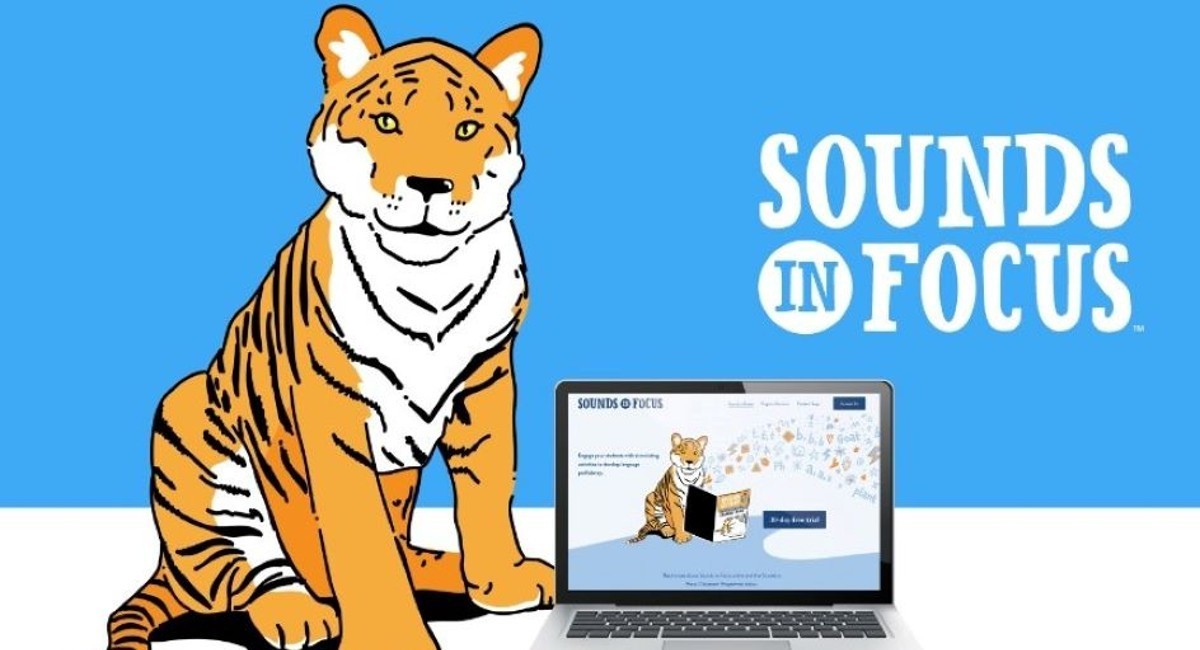- Friday 16 June 2023
Ever wondered whether there’s a comprehensive literacy programme out there that makes English language learning more exciting and accessible for your pupils? As educators, ensuring our lessons are the most effective they can be for all of our pupils is a top priority. This is why we created the Sounds in Focus series.
Prim-Ed Publishing’s bestselling Sounds in Focus series is a phonemic literacy system with a whole-school approach to learning how to encode and decode the English language. This synthetic phonemic approach has been recognised as the most effective way to teach literacy skills and improve school ranking. Essentially, it’s the programme you’ve been looking for.
What is the Sounds in Focus Approach?
Well, this new-style approach is a sound-to-letter encoding and decoding method, which acknowledges that sounds can be represented in more than one way—giving pupils the skills to decipher words through a letter/sound correlation. For example, the letter ‘m’ is in the words moon, hammer and thumb—however, the letter sounds different in each word when you say them aloud.
To understand the use of Sounds in Focus, we must first understand how we can break words down into code so it can be deciphered.
Phonemes refer to the smallest unit of sound that you hear in a word, for example:
- the word ‘in’ has two phonemes, I N
- the word ‘sing’ has three phonemes, S I NG
Graphemes refer to the letter, or letter combination, used to represent a phoneme in written form. In other words, these are the letters you see on the paper.
Sounds in Focus uses both phonemes and graphemes to break down the English language into decodable chunks, making it easier for children to understand. When these ‘chunks’ are placed alongside pictures, this becomes the ‘code’—used for encoding and decoding the English language—and gives pupils an extra literacy tool. Building deeper understanding, and improving reading and writing has never been easier!
So, How Does it Work?
The Sounds in Focus method contains 56 sound units, easily broken down into school levels, from 1st–6th Class. Every class completes the same sound every week, but in different ways, based on their age. In individual classes, each week’s plan has a three-step process to teach the scheduled learnings.
This three-step weekly programme has tailored activities to complement it, such as a sound search on everyday things—making the learning fun for teachers and pupils. As the programme provides focus on the same sounds in each class, you have an opportunity to create fun, whole-school activities—for example, you could instruct each class to bring words that have the ‘egh’ sound to an assembly. This activity connects the whole school and allows all pupils to be exposed to a range of new words.
What Resources Are Available?
An array of resources are available to purchase, all of which are designed to support teachers and pupils in their literacy lessons. Our range includes teacher guides, pupil workbooks, posters, flash cards, and our Sounds in Focus online portal.
The online portal is a great tool that allows pupils to work on activities digitally. As the world continues to move towards digital platforms, we recognise the need to deliver content in multiple ways, so further development of this platform is a key part of our plans for the future!
Adopt the Sounds in Focus Approach
Sounds in Focus is a system designed to increase the literacy scores of whole schools—and those that have adopted this approach have seen extremely positive results. This synthetic phonemic approach towards literacy is essential, as it replaces standard learning techniques with strategies for reading, writing and spelling that have the best outcomes.
No prior phonemic knowledge is needed to use this programme. Once you learn how to break down the words into these sounds—with guidance from our workbooks—you and your pupils will be on your way to success, and improved literacy ratings.
Try out the programme for yourself with our free sample of Sounds in Focus!
